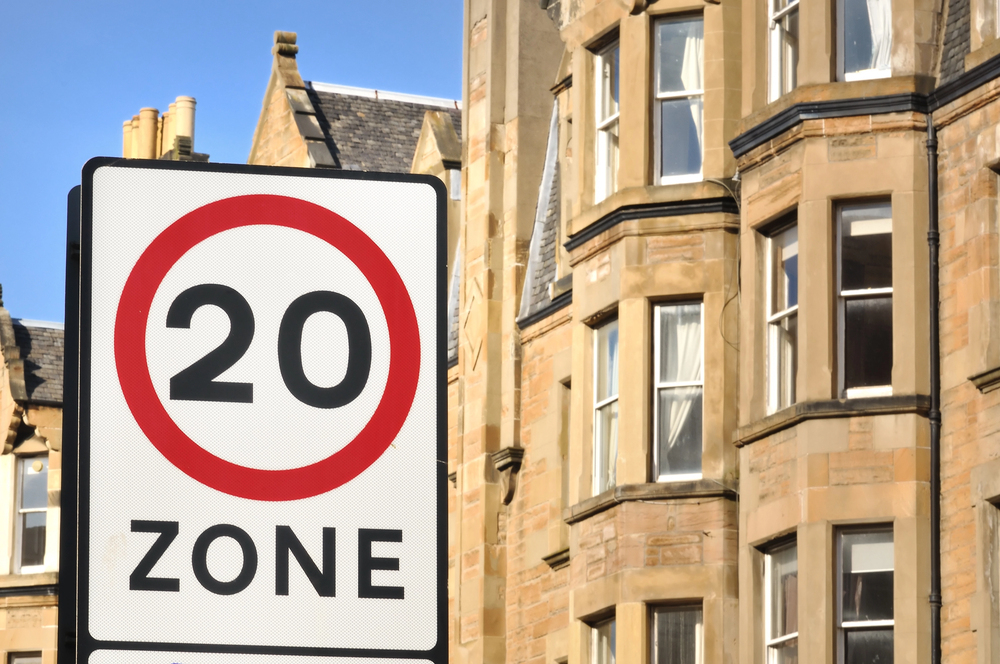The little known WHO-Backed Conference That Set the Stage for Wales’ 20mph Law

20mph is now being rolled out in England and many are crediting Wales for getting the ball rolling in the UK. However, in reality 20mph goes all the way back to a little-covered WHO-backed conference in Sweden. Back in February 2020, while COVID-19 was already a rising concern, just weeks before the international lockdowns, global leaders quietly gathered in Stockholm for a World Health Organization-backed road safety summit.
At the heart of the conference was a proposal that would later become a point of serious political and public debate in Wales: a recommendation for default 20mph (30km/h) speed limits in built-up areas.
The event, known officially as the 3rd Global Ministerial Conference on Road Safety, resulted in the signing of the Stockholm Declaration — a non-binding agreement which called on all countries to reduce urban speed limits and halve road traffic deaths and injuries by 2030.
While it attracted limited media attention at the time, the conference has since come under renewed scrutiny following the Welsh Government’s controversial decision to implement a nationwide 20mph speed limit in September 2023.
What Was Agreed in Stockholm?
Hosted by the Swedish Government in collaboration with the World Health Organization, the Stockholm conference brought together ministers and officials from over 140 countries. The declaration included a recommendation that countries adopt a maximum speed of 30km/h (approx. 20mph) in areas where cars mix with pedestrians and cyclists, unless strong evidence supports higher limits.
The declaration did not carry legal force, but it has influenced policy direction in several countries, particularly in parts of Europe — including Wales — where 20mph laws have since been introduced.
Wales and the 20mph Policy
Wales became the first UK nation to adopt a national 20mph default speed limit for residential and urban roads. While ministers described the move as a road safety and public health measure, it has sparked widespread public and political opposition, with concerns over enforcement, journey times, business impact, and a perceived anti-driver agenda – which, alongside the Welsh Transport Delivery Plan (which mentions road charging, workplace car parking levies and road space reallocation) has raised many concerns among residents.
A petition launched in June 2024 to “Rescind and remove the 20mph law” gained nearly 500,000 signatures and was later debated in the Senedd on 22 May 2024 – however, only a handful of Senedd ministers attended the debate and despite plenty of rhetoric and promises, little has changed in Wales and 20mph remains the default speed limit for Wales, with little opposition from Labour and Plaid. The semantics clearly mattered to the Senedd too, the then Shadow Transport Minister Natasha Asghar was accused of lying by Transport Secretary Lee Waters after she used the word ‘blanket’ instead of ‘default speed limit’, later receiving a formal sanction from the Senedd for the comment. Asghar said at the time:
“To say I brought the Senedd into disrepute by using the word blanket, for me, is purely absurd. I make no apology whatsoever for standing up for my constituents and residents across Wales. With 97% of former 30 mph roads dropping to 20 mph as a result of this policy, it remains my opinion that this is a blanket approach.”
Critics argue the evidence used to support the policy is selective or inconclusive, particularly in rural and suburban areas where accident data is limited. Supporters, including global NGOs and public health bodies, maintain that lower speeds reduce the risk and severity of collisions. Either way it seems a moot debate given that Wales had already made the commitment to implement 20mph at the Stockholm conference in 2020 and according to the Petitioner, this was a deal they were not prepared to reconsider.
Petitioner Mark Baker said:
“I got tired of engaging with the Government over this pretty fast, it was clear from the outset that nothing would change apart from the PR and I wasn’t prepared to play nice and accept a pat on the head. Hardly any Welsh Ministers even had the respect to turn up to the debate on the petition, there was no vote held after the debate anyway and some members of the Welsh Government were clearly more interested in the opinions of it’s paid contractor Sustrans, who former Transport Minister Lee Waters had previously worked for at Director level, than in the opinions or requirements of the electorate. I wasn’t going to help them by playing along and pretending we had any real engagement, the decision was clearly made already and there was (and still are) no prospects for change – playing on the global stage clearly matters more.”
Brake’s Involvement
The UK-based road safety charity Brake supported the Stockholm Declaration and has long campaigned for lower speed limits. Although not an organiser of the 2020 conference, Brake was one of several NGOs pushing for the inclusion of 20mph zones in the final declaration.
Founded in 1995 by journalist Mary Williams OBE, Brake receives funding from a combination of public donations and corporate sponsors. These include:
-
AXA UK – a partner in road risk campaigns
-
Esure and Sheilas’ Wheels – sponsors of youth and driver safety campaigns
-
Devitt Insurance – sponsor of Brake’s awareness campaigns
-
AlcoSense – supporter of drink-driving education
Brake continues to promote 20mph limits across the UK and supported the Welsh Government’s decision, describing it as a “step forward for safety”. However, its position has been challenged by campaigners who argue the policy lacks widespread democratic support and is driven by international organisations rather than public consultation.
Who Funded the Stockholm Conference?
The conference was hosted by Sweden’s Ministry of Infrastructure, co-organised by the WHO, and financially supported by:
-
FIA Foundation – a road safety and mobility NGO
-
Bloomberg Philanthropies – which announced a $240 million global road safety investment at the event
-
FedEx (via iRAP) – supporting urban road safety initiatives
-
Other donors and UN bodies including the UN Road Safety Fund
These organisations have continued to fund and promote road safety programmes worldwide, including campaigns advocating for 20mph zones.
Why It Matters
Though not widely publicised, the Stockholm Declaration laid the foundation for a wave of speed limit reforms around the world. Whether viewed as a necessary public safety intervention or an overreach of global policy into local transport matters, its influence is now being felt across the UK — with Wales at the centre of the debate.
The full impact of the 20mph law in Wales remains a subject of ongoing political discussion and public review, particularly as the first post-implementation data and feedback begins to emerge. However, one thing is certain – 20mph was the catalyst for a huge political awakening in Wales and the ripples of this unpopular policy are likely to play a part in next year’s Senedd elections.
—
Sources:
-
Stockholm Declaration: https://www.roadsafetysweden.com/about-the-conference/stockholm-declaration/
-
WHO announcement: https://www.who.int/news/item/20-02-2020
-
Brake: https://www.brake.org.uk
-
Bloomberg Philanthropies Road Safety: https://www.bloomberg.org/program/public-health/road-safety/
-
UN Resolution A/RES/74/299: https://digitallibrary.un.org/record/3872673
Image: Deposit Photos





